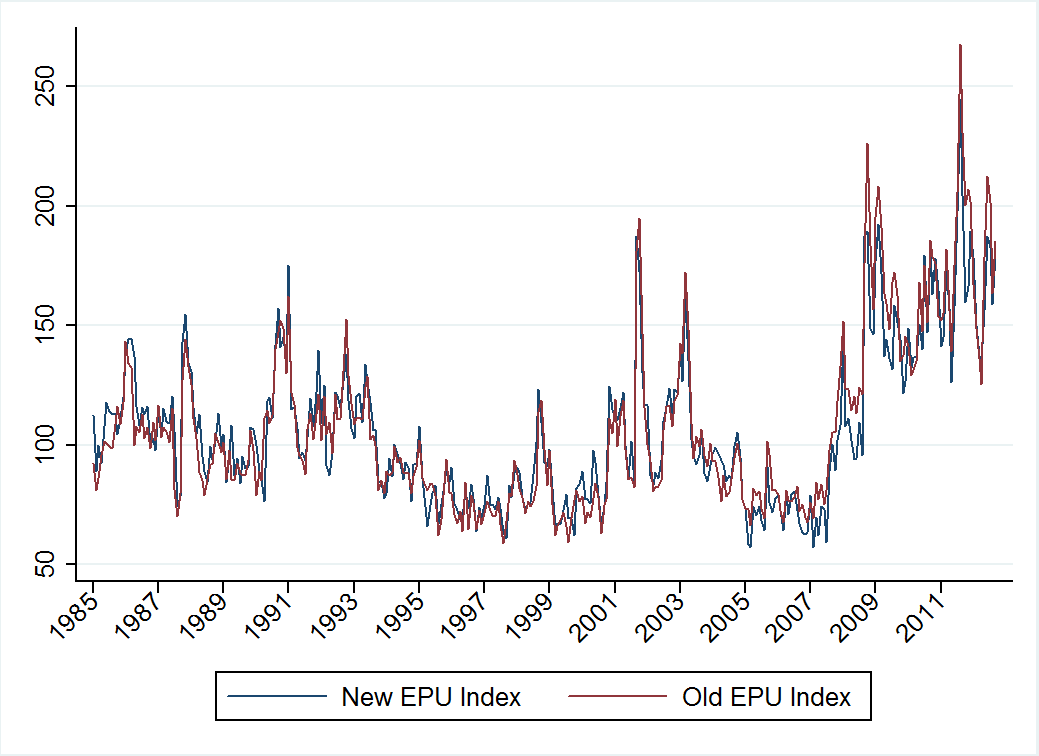Revisions to US Index
Download Old Version of Data
In order to improve the accuracy and reliability of our index, we have made a number of changes to each of the components.
News Coverage about Policy-related Economic Uncertainty
After an extensive human audit of several thousand news articles, we have modified our search criteria to obtain a truer measure the number of articles regarding economic policy uncertainty. To this end, we now use the terms: 'regulation', 'deficit', 'federal reserve', 'white house', 'congress', and 'legislation' as part of our search criteria, having removed 'tax', 'budget', 'policy', and 'spending' which had higher error rates. This change had the effect of slightly lowering the level of policy uncertainty in recent years and raising the level in the late 1980s and early 1990s. Secondly, we now normalize our news-based component by the total number of articles in a month, instead of the number of articles containing the word 'today'.
Tax Code Expiration Data
For the tax expiration component, we have shifted to a dollar weighted index instead of one weighted only by the number of pieces of the tax code up for expiration. We feel this better captures the magnitude and importance of expiring legislation, as well as having fewer measurement issues dealing with how the CBO and JCT reported on large bundles of expirations (as single provisions or broken up into multiple provisions) from year to year.
Economic Forecaster Disagreement
We have also implemented a slight change for forecaster disagreement measure for the United States. In order to be able to release our monthly index on time each month (before the 5th of the month), we have shifted the forecaster disagreement measures by one month. So the Q4 release of this metric by the Philadelphia Federal Reserve will be applied to November, December, and the following January instead of October, November, and December.
